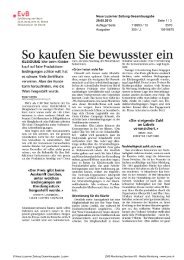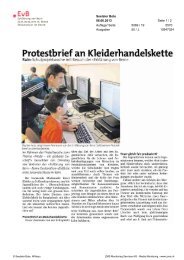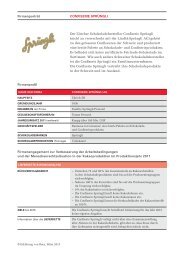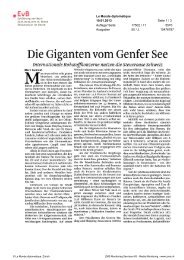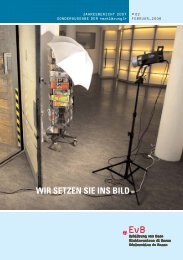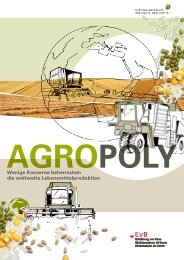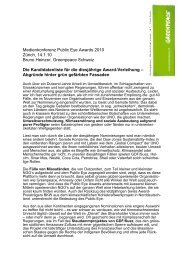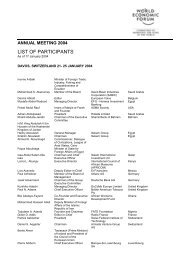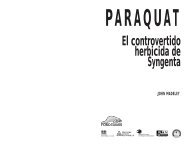Maid in India
Maid in India
Maid in India
You also want an ePaper? Increase the reach of your titles
YUMPU automatically turns print PDFs into web optimized ePapers that Google loves.
<strong>Maid</strong> <strong>in</strong> <strong>India</strong><br />
Executive summary<br />
Introduction<br />
In Tamil Nadu, South <strong>India</strong>, textile and garment products for big brands and retailers are be<strong>in</strong>g<br />
made by girls and young women from low caste backgrounds under exploitative work<strong>in</strong>g<br />
conditions. Workers are recruited from poverty-stricken areas with<strong>in</strong> as well outside of the state of<br />
Tamil Nadu. A large number of these labour migrants live <strong>in</strong> (factory) hostels where they have<br />
almost no opportunity to <strong>in</strong>teract with the outside world. Workers are expected to work long hours<br />
of forced overtime, sometimes up to 24 hours a day under unhealthy conditions.<br />
This report, ‘<strong>Maid</strong> <strong>in</strong> <strong>India</strong>’, follows the report ‘Captured by Cotton’ 1 , published by the Centre for<br />
Research on Mult<strong>in</strong>ational Corporations (SOMO) and the <strong>India</strong> Committee of the Netherlands (ICN)<br />
<strong>in</strong> May 2011. ’Captured by Cotton’ revealed that a great number of workers were employed under<br />
the so-called ‘Sumangali Scheme’. Under the Sumangali 2 Scheme workers are recruited with the<br />
promise that they will receive a considerable amount of money after completion of three to five<br />
years of employment. This amount can be used to pay for a dowry. This exploitative scheme is<br />
tantamount to bonded labour, because employers withhold part of the workers’ wages until they<br />
have worked there for three to five years. In addition it was found that workers are severely<br />
restricted <strong>in</strong> their freedom of movement and privacy.<br />
The current report provides an update of labour conditions <strong>in</strong> the Tamil Nadu garment and textile<br />
<strong>in</strong>dustry and exam<strong>in</strong>es the current situation at the four garment manufacturers orig<strong>in</strong>ally<br />
<strong>in</strong>vestigated for ‘Captured by Cotton’, i.e. Bannari Amman, Eastman Exports Global Cloth<strong>in</strong>g,<br />
K.P.R. Mill and SSM <strong>India</strong>. In addition, the report looks <strong>in</strong>to what efforts have been undertaken by<br />
various parties to achieve improvements. It also presents an overview of recommendations on how<br />
to cont<strong>in</strong>ue to improve conditions.<br />
This report aims to provide relevant stakeholders – manufacturers, buy<strong>in</strong>g companies, trade<br />
unions, local and <strong>in</strong>ternational civil society organisations, governments and others – with food for<br />
thought to enable and spur further action. On the basis of the field research and analysis of<br />
promises and actual steps taken by the <strong>in</strong>dustry and other relevant actors, conclusions are<br />
formulated, as well as practical recommendations.<br />
F<strong>in</strong>d<strong>in</strong>gs<br />
The f<strong>in</strong>d<strong>in</strong>gs of the research show that, to vary<strong>in</strong>g degrees, improvements have been implemented<br />
at the four manufacturers s<strong>in</strong>ce the publication of ‘Captured by Cotton’. One manufacturer has<br />
stopped us<strong>in</strong>g the Sumangali Scheme <strong>in</strong> all its operations. Another manufacturer has phased out<br />
the Sumangali Scheme <strong>in</strong> its end-product facilities. Improvements regard<strong>in</strong>g freedom of movement<br />
have been reported at all four manufacturers. Permission to leave the hostel accommodation is<br />
granted more easily and sometimes groups of women are allowed to go shopp<strong>in</strong>g unaccompanied.<br />
1<br />
2<br />
Centre for Research on Mult<strong>in</strong>ational Corporations (SOMO) and the <strong>India</strong> Committee of the Netherlands (ICN), ‘Captured<br />
by Cotton – Exploited Dalit girls produce garments <strong>in</strong> <strong>India</strong> for European and US markets’, Amsterdam, the Netherlands,<br />
May 2011, < http://somo.nl/publications-en/Publication_3673 ><br />
The Tamil word ‘Sumangali’ refers to a married woman who lives a happy and contented life with her husband with all<br />
good fortunes and material benefits.<br />
6



